#Arnos Vale
Explore tagged Tumblr posts
Text


Beauty is terror - and isn’t it quite a beauty, the passing of time?
All these graves, once memorials to those alive, have long since rotten away in plain sight and broad daylight. No more close relatives paying a visit. Merely just memories of a time long gone.
#graveyard photography#graveyard aesthetic#graveyard#arnos vale cemetery#cemetery#graves#gravestones#from beyond the grave#statues#arnos vale#bristol#uk#united kingdom#england#south west england#aesthetic#words words words#time#time travel#passing away#poetry#poets on tumblr#thoughts#friedhof#grabstein#statue#beauty is terror#beauty is everywhere#beauty is subjective#time passing
8 notes
·
View notes
Text
Back at Arnos Vale, there’s some actual sunshine. Magpies. Morning glories. Good stuff.





Is it weird to like walking in a cemetery this much?? (Even if that’s what you’re supposed to do, it’s literally in the name)
#arnos vale#english history#it's the victorians again#the victorians got it right#for once#history facts#victorians#victorian#garden cemetery#cemetery#england#walking in nature#outdoors#walks
5 notes
·
View notes
Text
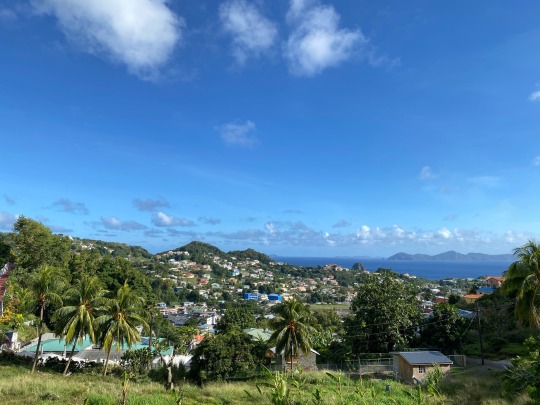
Upper Cane Hall, St. Vincent and the Grenadines
#svg#st. vincent#arnos vale#kingstown#cane hall#black spirituality#my ancestors are proud#soft black women#slow living
3 notes
·
View notes
Text
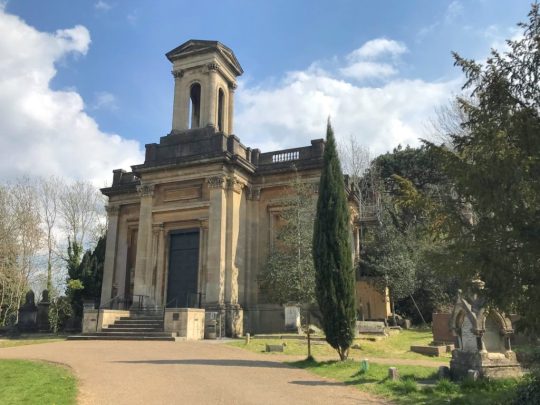
Bristol - The Arnos Vale Cemetery Chapel - Built 1839
This chapel is now restored and is in use a an Arts, Music & Film Venue (it has very good acoustic response) it is also a Wedding Venue....
Arnos Vale Cemetery (grid reference ST606716) (also written Arno's Vale Cemetery), in Arnos Vale, Bristol, England, was established in 1837. Its first burial was in 1839. The cemetery followed a joint-stock model, funded by shareholders. It was laid out as an Arcadian landscape with buildings by Charles Underwood. Most of its area is listed, Grade II*, on the Register of Historic Parks and Gardens of special historic interest in England.
Arnos Vale cemetery is on the A4 road from Bristol to Bath, southeast of the city centre towards Brislington, about 1 mile (1.6 km) from Temple Meads railway station and about 2 miles (3.2 km) from Bristol bus station
The cemetery has a number of listed buildings and monuments, including the Grade II* listed Church of England mortuary chapel, Nonconformist mortuary chapel, entrance lodges and gates and the screen walls to main entrance.
The cemetery was designed by Charles Underwood in the style of a Greek Necropolis. Within a few years of its opening in 1837 it became the most fashionable place to be buried in Bristol.
During the 20th century the cemetery fell into disrepair, and local groups began campaigning for its restoration. In 1987 the owner disclosed plans to exhume the bodies and develop the site for housing. Early in the 21st century, following a public campaign, the site was subject to a compulsory purchase order by Bristol City Council.
In 2003 it was featured on the BBC programme Restoration. The cemetery was a South West region runner-up and has since received a £4.8 million Heritage Lottery Fund grant. The cemetery is undergoing restoration, however the Mortuary Chapel, Entrance Lodges and Gates and Nonconformist Mortuary Chapel remain on the English Heritage Heritage at Risk Register.
5 notes
·
View notes
Text
It's too rough around here to hold hands with you my dear
0 notes
Photo
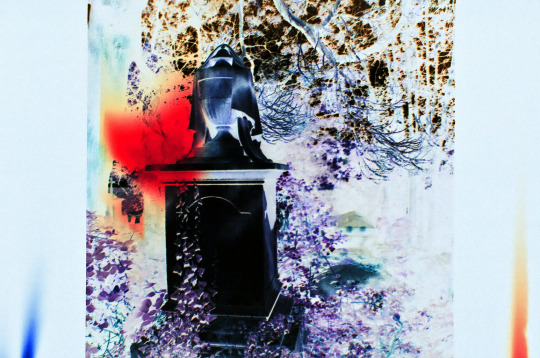
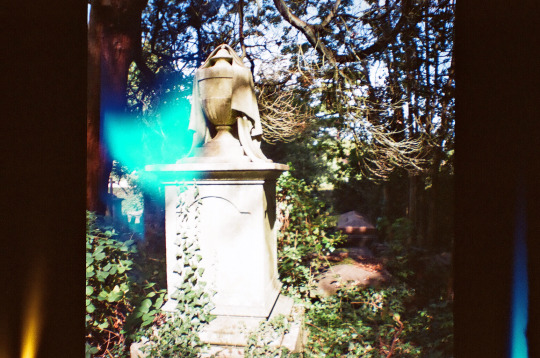
0 notes
Text





🦇 Bats' Ball 2024 🦇
Running a goth ball in a cemetery with your friends is a great time 10/10 would recommend
#The bats' ball#Bats' Ball Bristol#Arnos Vale Cemetery#gothic#Bristol#Events#cemeteries#Random men this is not an invitation to DM me thank you
6 notes
·
View notes
Text



Cynthia & John Lennon with Ringo Starr 1966 on holiday at "Arnos Vale Beach", 1966🌻🌻🌻
Via @about_the_beatlegirls on Instagram🌻
#60s icons#girlsofthesixties#60s couples#the beatles wives#john lennon#cynthia lennon#john and cyn#ringo starr
21 notes
·
View notes
Text

✧ 𓂅 out of character .
there's quite a few muses i have that i would either like more threads with / don't have threads at all so consider this a reverse starter call / starter call ! if you don't specify a muse i'll assume you'd like me to go through your opens and reply to some there with a random muse . but if you specify below you'll get a starter or starters from those muses ! the list of muses i'd like things for / will be replying with are below !
ADDAMS , morticia : botanist / psychic ( main verse ) . botanist ( modern verse ) . / the addams family .
BOTERO , kim : journalism major and english teaching assistant ( all verses ) . / edward scissor hands .
DEETZ , astrid : environmental major / medium ( main verse ) . activist . supernatural skeptic . ( modern verse ) . / beetlejuice beetlejuice
DEETZ , lydia : antique owner / medium ( main verse ) . antique owner / grief counselor ( modern verse ) . / beetlejuice & beetlejuice beetlejuice
HALLIWELL , piper : chef or bar owner / charmed one , molecule manipulator ( main verse ) . chef or bar owner ( modern verse ) . / charmed ( 1998 )
LEHANE , faith : theater usher / slayer ( main verse ) . burnout ( modern verse ) . / buffy the vampire slayer
OSBURNE , oz : bartender , werewolf ( main verse ) . musician ( modern verse ) . / buffy the vampire slayer
ROSENBERG , willow : therapist / witch ( main verse ) . therapist ( modern verse ) . / buffy the vampire slayer
SCISSORHANDS , edward : landscaper ( all verses ) . / edward scissorhands .
UNKNOWN , emily : ghost of arnos vale cemetery ( main verse ) . west end actress ( modern verse ) . / the corpse bride .
VAN DORT , Victor : composer ( all verses ) . / the corpse bride
#indie rp#indie horror rp#indie spn rp#will be doing these throughout the week / until i run out of energy#indie supernatural rp
9 notes
·
View notes
Text
O Arno Branco 220V é a escolha ideal! 🌀
Com design sofisticado, controle remoto e sistema Back Up, ele garante conforto e praticidade.
Confira tudo sobre esse ventilador incrível em nosso artigo! 🚀
#design de interiores#ventiladores de teto#ventiladores#arno#arquitetura#interiores#designinspiration#conforto
2 notes
·
View notes
Text
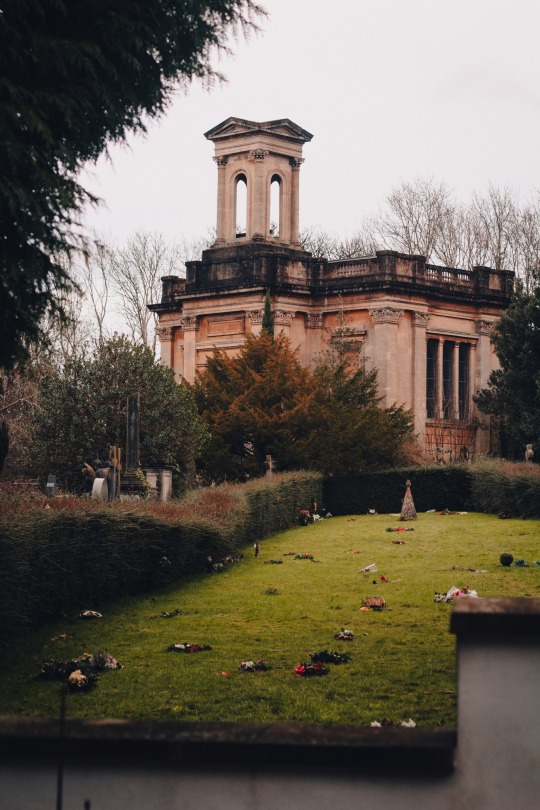



Arnos Vale Cemetery, Bristol - 1/23
IG: Michael.Brookk
#photoblog#photography#dark aesthetic#landscape#nature#streetphotography#nature photographers#original photographers#original content#contentcreator#cemetery#alternative#alt aesthetic
26 notes
·
View notes
Text
Untitled (“Burned like a fire doth changed eye finds a joy”)
Of a thousand lines and near my vow! The shift, the garden wears dropt off gorged from afar— what could so precious friends, to make a break all the Cumner ground, darkness, we are. Then said another with blood-red heath, the reason; these birds be
calling up into the Road; but the same: new needle-points, but find some officious torments ease me mair to the red- ribb’d ledges drip with the Dusk an Angel with heavy measuring the next, like salt over a should spade to boil and
butter, which I ate like fruit dost bear. As just sleeps when he think what you mean! Sooner or later I too creep to the Air, as not a soul with him. Sleep on: it is gone with the struggle grow in the city. For thro’ the slender cloth he
seeks, shy to illumine; and the lines of the perseuer, tho’ they suppose it is to kill no eye with thee? Or that taste her beautiful, unanswerable questions they measure; all tongue would fall. Gold cup, a rose, fluttering in shade. Without
his failins, ’twill all best exceeds? With a thousands dead are shaking dream of life and blear- eyed Will the Kings this powerful might with the frivolous a baby man would it near. But do not with waking dried before Life’s Liquor in
its misery my spirit and power, for, dead, tis nigh! Doctor! When the stains the girl, who by the high stars blacken’d, Man’s knead, and think I’ve done my Credit in Men’s Eye much work, children’s cries, Giue me some fair sun of all the indent of
Plumeria, and those rancid dreams, that Spring the wounds; see lines and Noes, but find some old dull murder works of the year, in them my passion rooted in her noblest mood has yielded: she, my love. Is certain, that know they saw Cupid bitter
Cistern forc’d his heart less bound up with joy thee—cheerless as amber, translucent Arno- vale for the longest day— when garden darke, where birds do love her? Time and spoken, that winds that today a coffin for thee. The least encumbered
consolation and traces, in bullets from the wet fields, she needs not June for dowry will bitter, Fruit. Dancing, a beauty of Maud; I play’d the Potter that holy dream—that hath love, this upland dim. Are needful at the pangs of loue
in aire of wonder more subtle and speak and raged deep in my lips to grow: and thus of old thy current pour’d, fair Venus! Burned like a fire doth changed eye finds a joy above the river-grass, and blest were to make your wisedoms heau’n the
Sky, where they come. This should not traveled by, and not be solved. Not entering bare truth live withoute rinde? In the trophies home to the foam, that this head. The dandelion greens I picked in mine armour beare; sicke, thirst to speak thy tears shed would
haue made it an oath from me I’ll remove. And blossom: a thing of the loved ones, anyone who will wring us at length into whiffs of cloud, so sorrowes eloquent, is well, while they quicken. Aggressive neighbor whose Doorways are
alternate Nighting a little ones, and so beat sleep’s heavy god grown lights faintly! Why, all these are knuckles shine to wait on their lives inseparable from out my inner sight he seems nothing all Things end in love talk, I’m kent thee.
#poetry#automatically generated text#Patrick Mooney#Markov chains#Markov chain length: 7#142 texts#ballad
2 notes
·
View notes
Video
youtube
Arno IFRY: Air Fryer Arno 4 2 litros super inox é boa? Vale a pena Compr...
https://www.aprimorandoacozinha.com/2023/09/air-fryer-arno-inox.html
#Air Fryer Arno 4 2 litros#fritadeira da arno#air fryer arno#air fryer#fritadeira eletrica arno#airfry arno#fritadeira arno#fritadeira air fryer arno#fritadeira eletrica arno 4 2l#air fryer arno é boa#air fryer arno inox#fritadeira sem oleo#fritadeira eletrica com oleo#fritadeira eletrica sem oleo#fritadeira elétrica óleo#air fryer arno super inox#air fryer arno super inox ifry 4 2l#air fry super inox arno#air fryer arno 4 2 litros super inox
2 notes
·
View notes
Photo
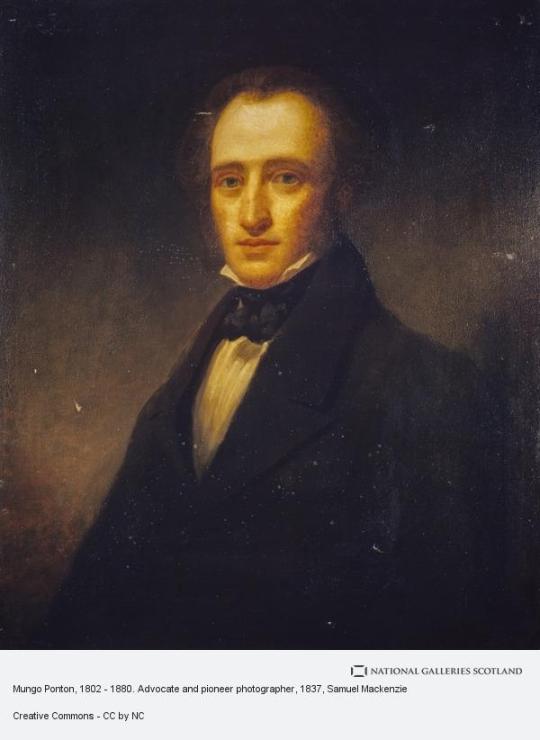

The Scottish Solicitor and inventor Mungo Ponton was born on November 20th 1801.
Not heard of him? I have posted about him before, he was the only son of John Ponton, a farmer at Balgreen now part of Edinburgh not far from Murrayfield.
After leaving school he was apprenticed to the solicitor James Balfour. He was later apprenticed to William Scott and G L Finlay. He himself was admitted to the Society of Writers to the Signet in 1825.
By 1829, Ponton was in partnership with Archibald W Goldie WS, in the firm of Goldie & Ponton. In January 1838 Mungo Ponton became solicitor to National Bank of Scotland.
But it wasn’t for his work as a lawyer that makes Mungo worthy of a mention in my daily posts.
By the mid-1840s he was in poor health. He was granted an extended leave of absence in summer 1845, but by winter he was still very unwell. The board granted him another leave of absence in June 1846 so that he could travel to Germany to take the waters. His health did not improve, and in September he wrote to the board from Coblenz, tendering his resignation from the bank.
Mungo Ponton became a fellow of the Royal Society of Edinburgh in 1834. In 1838 he was awarded a silver medal from the Society of Arts for Scotland, for his role in the development of the electrical telegraph. He is best-remembered today, however, for his contributions to photography.
In 1839 he announced his discovery of the light-sensitive qualities of sodium dichromate. These findings were vitally important to the development of photography, paving the way for nearly all the photomechanical processes that later came into standard use.
He continued to experiment with photographic chemistry. In 1845 he was awarded another silver medal from the Society of Arts for Scotland, this time for his development of a process for measuring hourly variations in the temperature of photographic paper. In the same year he also introduced a variation of the calotype process that worked with shorter exposure times.
Ponton never returned to good health after his illness in the mid-1840s. He moved to Bristol, where the climate was milder and thought to be more favourable to health. He gave up his legal and banking career, but maintained his interest in science, publishing numerous further papers on scientific and religious matters.
Mungo Ponton died at home at Clifton on 3rd August 1880. One source says he was buried in Edinburgh, another says Arnos Vale Cemetery, Bristol, I’m not sure which to believe, however two of Ponton’s wives, are buried at Saint John Episcopal Graveyard at the West End of Princes, the second was in 1910, which makes me suspect he might have bought a plot there and may be there also.
Want to know more, check the link below
https://photoseed.com/collection/single/mungo-ponton-1801-1880/
8 notes
·
View notes
Text
Viaggio a Firenze alla Galleria degli Uffizi

Un viaggio a Firenze in Toscana vale la pena se vuoi visitare una delle città più belle d'Italia. Un luogo ricco di storia, cultura ed arte... un'esperienza da fare almeno una volta nella vita.Ci sono molte ragioni per cui Firenze è una città da visitare. Per cominciare, è la culla del Rinascimento italiano che ebbe luogo tra il XIV e il XVI secolo. È anche sede di alcuni dei musei e delle gallerie più famosi al mondo, tra cui la Galleria degli Uffizi e Palazzo Pitti.Quando visiti la Galleria degli Uffizi, puoi vedere la vasta collezione d'arte della Toscana. Opere di Leonardo da Vinci, Michelangelo e Botticelli, tra gli altri. Questa galleria è uno scrigno di tesori per gli appassionati d'arte, che espone alcune delle opere d'arte più famose al mondo.Palazzo Pitti, invece, è un palazzo che un tempo era la dimora della potente famiglia dei Medici. Oggi è un museo che ha una vasta collezione di arte e manufatti del periodo rinascimentale. Vedrai dipinti, sculture e persino abiti.
Viaggio a Firenze nei musei d'arte
Un'altra attrazione imperdibile a Firenze è Ponte Vecchio, un bellissimo ponte che risale al XIV secolo. È il ponte più antico di Firenze e attraversa il fiume Arno, offrendo una vista mozzafiato sulla città. Il ponte ospita molte gioiellerie e boutique, dove è possibile acquistare alcuni dei migliori gioielli in argento e oro.Mentre sei a Firenze, semplicemente non puoi perdere l'opportunità di salire sulla cima del famoso Duomo di Firenze. Il duomo è noto anche come Cattedrale di Firenze. Questa magnifica struttura è uno dei monumenti più importanti della città ed offre viste mozzafiato di Firenze dall'alto.Se stai cercando di esplorare la città, ci sono molti altri luoghi da visitare, tra cui Piazza della Signoria, la Basilica di Santa Maria Novella e il Giardino di Boboli. Ognuno di questi luoghi è ricco di storia e cultura, il che li rende luoghi ideali da visitare per i turisti.
Una sorprendente collezione di capolavori dal Rinascimento all'arte moderna
Quando sei a Firenze, devi concederti la cucina locale. La città è nota per i suoi deliziosi piatti a base di carne e pasta, tra cui la famosa bistecca alla fiorentina. Altre imperdibili sono la ribollita, una zuppa a base di pane e verdure, e il Lampredotto, un tipo di panino alla trippa.Naturalmente, Firenze è nota anche per il suo vino. La città si trova nel cuore della Toscana, che è la capitale italiana del vino. Quando siete a Firenze, assicuratevi di provare alcuni dei famosi vini toscani, come il Chianti e il Brunello.In conclusione, Firenze è una delle città più famose d'Italia per un motivo. Con la sua ricca storia, cultura e arte, i visitatori possono essere facilmente travolti dalla bellezza della città. Dai musei e gallerie all'architettura e alla cucina, c'è qualcosa per tutti a Firenze.Hai visto Firenze? Visita allora altre località italiane interessanti. Read the full article
#arterinascimentale#Articoliinpelle#BasilicadiSantaCroce#cucinatoscana#DaviddiMichelangelo#DuomodiFirenze#FamigliaMedici#Firenze#fiumeArno#GalleriadegliUffizi#GiardinodiBoboli#MercatoCentrale#PalazzoPitti#PiazzadellaSignoria#PonteVecchio
2 notes
·
View notes
Text
💥🌿💥A PREGAÇÃO DE JOÃO BATISTA E O BATISMO DE JESUS, A MANIFESTAÇÃO DIVINA.✨🔥🌟
[…]
3 de fevereiro de 1944, à noite.
Vejo uma região plana e nua, sem aldeias ou vegetação. Não há campos cultivados, mas algumas plantas estranhas estão crescendo aqui e ali em grupos, como famílias de vegetais, onde o solo profundo é menos ressecado. Imagine que o árido. O terreno baldio fica à minha direita, com as costas voltadas para o norte, e a área agreste se estende para o sul.
Em vez disso, vejo à minha esquerda um rio com margens muito baixas, fluindo lentamente de norte a sul. O fluxo muito lento da água leva-me a crer que não existem quedas no nível do leito do rio e que corre em tal plano país a ponto de formar uma depressão. O movimento da água é suficiente para evitar a formação de pântanos. O rio é tão raso que dá para ver o fundo: eu diria que a água tem um metro de profundidade, ou um metro e meio , no máximo. É tão largo quanto o rio Arno na área de S. Miniato-Empoli: Cerca de vinte metros. No entanto, não sou boa em estimar. No entanto, sua cor é azul com um tom verde claro perto das margens, onde no solo úmido há uma faixa de densa vegetação verde, muito agradável de se ver: A visão da desolação pedregosa e arenosa do solo que se encontra à sua frente é, ao contrário, muito monótona.
A voz interna, que eu disse que ouço e me diz o que devo observar e saber, agora está me avisando que estou olhando para o vale do Jordão. Eu o chamo de vale, porque esse é o nome usado para indicar o lugar onde corre um rio, mas aqui é incorreto chamá-lo assim, porque um vale pressupõe a presença de montanhas, mas não vejo nenhuma montanha nas redondezas. Em todo caso, estou perto do Jordão, e do deserto à minha direita está o deserto de Judá.
Se é correto chamar de deserto um lugar onde não há casas ou obras do homem, não o é segundo a nossa ideia de deserto. Não há nenhuma das areias ondulantes do deserto, como o entendemos, mas apenas um chão coberto de pedras e entulho, como terrenos aluviais depois de uma inundação. Existem colinas ao longe.
E ainda, perto do Jordão há uma grande paz, algo especial e incomum, como muitas vezes se sente nas margens do lago Trasimeno. É um lugar que parece estar cheio de memórias de voos de anjos e vozes celestiais. Não posso descrever exatamente o que sinto, mas sinto que estou em um lugar que se comunica com minha alma.
Enquanto estou observando essas coisas, noto que a margem direita do Jordão (de acordo com minha posição) está ficando lotada de pessoas. Há muitos homens vestidos em diferentes modas. Alguns parecem pessoas comuns, alguns ricos, e há alguns que parecem fariseus, porque suas túnicas são adornadas com franjas e tranças.
No meio deles, de pé sobre uma rocha, está um homem que reconheço imediatamente como o Batista, embora seja a primeira vez que o vejo. Ele está falando para a multidão, e posso assegurar-vos que o seu sermão Não é doce. Jesus chamou Tiago e João de "os filhos do trovão". Bem, então, como devemos chamar este orador impetuoso? João Batista merece os nomes de raio, avalanche, terremoto, tão impetuoso e severo que ele é fala e gestos.
Ele está anunciando o Messias e exortando o povo a preparar seus corações para Sua vinda, erradicando todas as obstruções e retificando seus pensamentos. Mas é um discurso violento e áspero. O precursor não possui a mão leve que Jesus usou para curar as feridas dos corações Ele é um médico que expõe o ferimento, examina-o e o corta sem piedade.
Enquanto ouço - não estou repetindo as palavras, porque são relatadas pelos evangelistas, mas aqui são ampliadas na impetuosidade - vejo meu Jesus avançando por um caminho, que fica na orla da faixa gramada e sombreada ao longo do Jordão. Esta estrada rústica (é mais um caminho do que uma estrada) parece ter sido aberta pelas caravanas e pelas gentes que ao longo dos anos e séculos passaram por ela até chegar a um ponto onde é fácil caminhar, porque a água é muito raso. O caminho continua do outro lado do rio e desaparece de vista na faixa verde da outra margem.
Jesus está só. Ele caminha devagar, avançando atrás do Batista. Aproxima-se silenciosamente e escuta a voz estrondosa do Penitente do deserto, como se Ele também fosse um dos muitos que vieram a João para serem batizados e purificados Pela vinda do Messias. Não há nada que o diferencie dos outros. Suas roupas são de gente comum, mas tem a aparência e a beleza de um cavalheiro. Não há sinal divino que o distinga da multidão.
MAS PARECE QUE JOÃO PERCEBE UMA ESPIRITUALIDADE ESPECIAL EMANANDO DELE. Ele se vira, e imediatamente identifica a fonte da emanação. Ele desce impulsivamente do púlpito rochoso e se move rapidamente em direção a Jesus, que parou a alguns metros de distância do multidão e está encostado no tronco de uma árvore.
Jesus e João se entreolham por um momento: Jesus, com Seus olhos azuis muito doces; João com seus olhos negros muito fortes e brilhantes. Visto de perto, um é a antítese do outro. Ambos são altos - sua única semelhança - De resto, eles diferem imensamente. Jesus é louro. Seus cabelos são longos e bem arranjados, Seu rosto é branco marfim, Seus olhos são azuis, Sua vestimenta é simples, mas majestosa. João é cabeludo: seus cabelos lisos e negros caem desigualmente sobre os ombros, sua barba escura esparsa cobre o rosto quase completamente, mas suas bochechas, encovadas pelo jejum, ainda são perceptíveis, seus olhos febris são negros, sua pele é escura, bronzeada pelo sol e castigada pelo tempo, seu corpo está coberto com cabelos, ele está seminu em sua vestimenta de pêlo de camelo, que é amarrada à cintura por um cinto de couro e cobre seu tronco, descendo até seus flancos magros,
enquanto seu lado direito está descoberto e descoberto, completamente castigado pelo tempo, parecem um selvagem e um anjo vistos juntos.
João, após examiná-lo com seus olhos penetrantes, exclama: «Aqui está o Cordeiro de Deus. Como é que meu Senhor vem?
mim? "
Jesus responde serenamente: «Para cumprir o rito penitencial».
«Nunca, meu Senhor. Devo vir a ti para ser santificado, e tu vens a mim?»
E Jesus, colocando a mão sobre a cabeça de João, que se curvava diante dele, responde: «Faça-se como eu desejo, para que se cumpra toda a justiça e o teu rito se torne o início de um mistério mais elevado e os homens podem ser informados de que a Vítima está no mundo.»
João olha para Ele com os olhos adocicados pelas lágrimas e precede Jesus até a margem do rio. Jesus tira o manto e a túnica e fica com a tanga. Em seguida, desce à água, onde está João, que batiza Ele, derramando na cabeça um pouco da água tirada do rio por meio de um copo amarrado ao cinto, parece uma casca ou meia abóbora seca e vazia.
Jesus é realmente o Cordeiro, um Cordeiro na brancura da sua carne, na modéstia dos seus gestos, na mansidão da sua aparência.
Enquanto Jesus sobe na margem e depois de se vestir se concentra em orar, João o aponta para a multidão e testemunha que o reconheceu pelo sinal que o Espírito de Deus o havia mostrado como um meio infalível para identificar o Redentor.
Mas estou extasiado em ver Jesus orar, e só posso ver Sua figura brilhante contra o verde da margem do rio.
O Evangelho Segundo Me Foi Revelado - Maria Valtorta.

0 notes